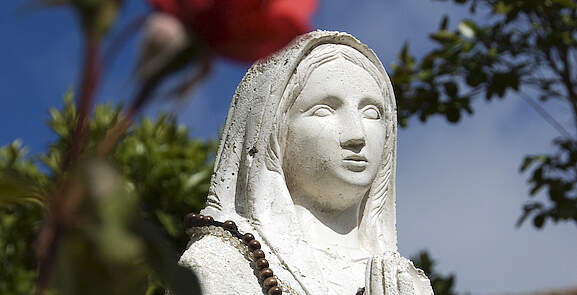
On November 30, 1186, Saint Andrew's feast, the monks of Déols, a small town in France, were gathered for the office of matins. By candlelight, the abbot inspected the choir of monks, and was about to give the signal to start singing, when he noticed an empty stall. "Where is our brother Josbert?" he asked. A long whisper traveled through the ranks, but no one knew. "It must be something serious. I'll go find out myself." And the abbot hurried out, followed by a novice.
Now Brother Josbert was known for his exceptional virtues, his piety and the scrupulous practice of his duties. After a short while, the abbot returned with a pale and serious countenance. He announced: "My brothers, something extraordinary has happened. Blessed Josbert is in Heaven. Pause the singing and come see the incredible miracle that has been performed on his body."
The monks rushed in the abbot's footsteps and entered with him into the cell where a marvelous sight awaited them: enshrouded in the rigid folds of his black habit, hands clasped together, his face turned heavenward, Josbert lay, lifeless, on his bulrush mat. Two red roses had grown out of his eye sockets, two others out of his ears, and a fifth one out of his mouth. Each flower had, imprinted in its small chalice-shaped corolla of petals, a letter of the Virgin's name in French, "M-A-R-I-E."
When Archbishop Henri de Sully came to admire the wonder, he decided to detach the miraculous roses, but these faded and withered as soon as they were removed from Josbert’s body, except for the one that had bloomed in his mouth. For a long time, the latter kept its freshness and bright colors inside the reliquary where it was deposited with the others.
Just Veillat (1813-1866)
First curator of Châteauroux Museum and author of historical novels.
Excerpted from his book Légendes pieuses du Berry (Pious Legends from Berry, France)